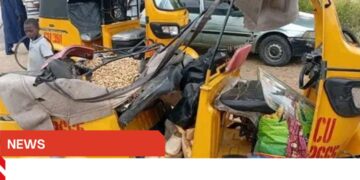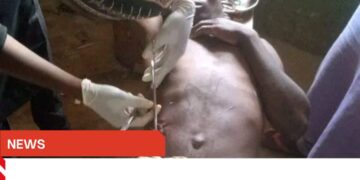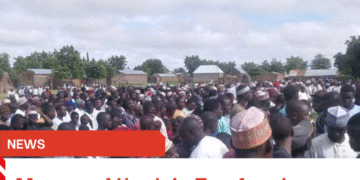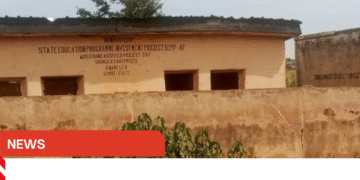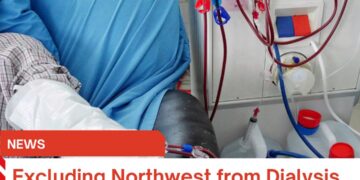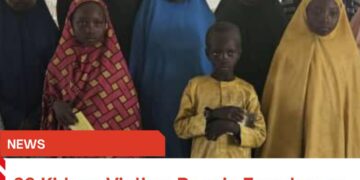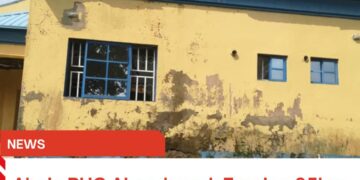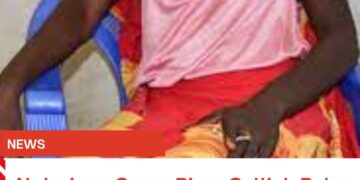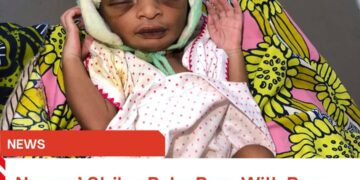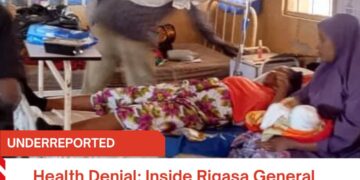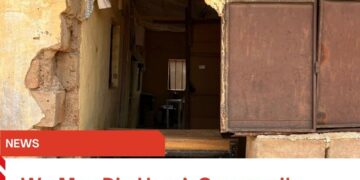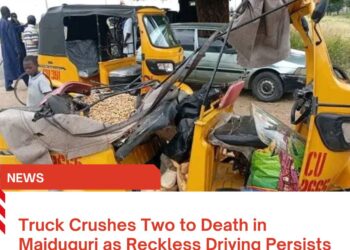Atrocities are committed against Nigerian civilians by sponsored extremist terrorist organizations like Boko-Haram and their so-called factional groups, the Islamic State-West Africa Province (ISWAP) in the northeast, while the terrorist armed groups of Fulani militia known as Bandits in the northwest have exposed many civilians to different humanitarian crises.
Between 2009 and 2020, more than 35,000 people have been mercilessly killed by the Boko-Haram insurgents. Women and children have suffered different abuses, forcing many civilians to flee their communities.
The northwest’s converging criminal and conflict dynamics have disproportionately impacted civilians. At least 608 individuals were killed in 245 incidents in Kaduna, Zamfara, Katsina, Kebbi, and Niger states between January and June 2020. In comparison, there were 251 incidents in the entire year of 2019, with 1,028 fatalities.
Terrorism, banditry, kidnapping, and armed robbery have fuelled a lucrative economy in the trafficking of small arms, light weapons, and other contraband in Nigeria.
Advanced Attacks in the Course of Bad Roads
Access and the inter-state road linking the northeastern parts of Nigeria are in serious bad shape despite the rising attacks, killings, and mass abductions by the two factional terrorist groups of the Islamic State-West Africa Province (ISWAP) and Jamā’at Ahl as-Sunnah lid-Da’wah wa’l-Jihd, also known as Boko-Haram.
The two factional terrorist groups have been advancing in their terror attacks since the emergence of new leaders following the murder of the wanted and dangerous leader, Abubakar Shekau, by the factional leadership of the Islamic State-West Africa Province (ISWAP), although there are different narrations of the story on how the dangerous Shekau answered the call of nature.
However, apart from corruption and under-funding budgeted projects, insurgency in the country’s northeastern regions has contributed to the delay and non-maintenance of some deteriorated roads in the region, despite the risk of terrorist attacks.
Therefore, motorists and travelers risk their lives during journeys despite the fear of terrorist groups’ for lack of options and alternative routes.
Recall that Nigerian President, Muhammadu Buhari, has made several campaign promises to Nigerians by fixing the damaged roads and restoring peace in the nation using the military and other measures to crush all terrorists and criminals.
Daily Episode gathered heartbreaking accounts of trouble, misery, frustration, and suffering from across the state’s North-East and Northwest regions while investigating the state of unsafe highways bedeviling the two regions.
Phenomnial’s North-East Boko-Haram/ISWAP insurgency scenario
As a result of frequent killings and mass abductions, travelers heading to Damaturu from the northern portion of Yobe state are forced to divert to the Jatusko-Potiskum road before heading to Damaturu instead of the shorter Gashua to Baimari road.
In addition, the highways connecting Damaturu and Maiduguri are in poor condition. Even though it is one of the more remote areas where terrorists struck, many contractors have since abandoned their sites for fear, while Nigerian troops have blocked some lanes of the highways for security reasons known to them, causing cars and travelers to face delays while on the move.
It was frightening driving through the road from Alkaleri in eastern Bauchi to Gombe, the state capital, despite the deep forest and lack of villages, and with less security or checkpoints of Nigerian troops compared to many parts of the northeastern states, where the insurgency has lasted for over a decade.
The 97 km journey from Alkaleri to Gombe, which was supposed to be a 1-hour 22-minute drive, has become a 4–5 hour journey with the conditions of the road, and maybe the longest and worst for strangers.
While the road connecting Gombe and southern Borno, particularly the Biu local government, has deteriorated significantly, although it is being gradually rebuilt from Bayo to Kwakusar, but slowly.
However, the road from Buratai-Damatari to Yamarkumi is another trap for travelers with portholes as ISWAP terrorists recently invaded the Tukur Yusufu Buratai Institute for War and Peace, a research institute of the Nigerian Army University, located in the southern Borno of Biu local government, where the terrorist groups ransacked the institute, burning vehicles belonging to the Nigerian troops while taking down the Nigerian flag, as seen in the video shared by the terrorist groups.
Similarly, roads connecting Maina-Hari, also known as the crossing, to Dabua-Mule have been abandoned as ISWAP/Boko Haram have installed several checkpoints and imposed a levy on a few residing commuters.
Although the recent attempt by ISWAP terrorists to invade and capture Biu town through the nearby village of Maina-Hari, which is 2 km away, was repelled by the Nigerian troops with the efforts of local hunters and the civilian JTF, which resulted in the killing of many terrorists.
Investigating deeper, Daily Episode witnessed with shock the level at which the federal road connecting Gombe to Yola has turned into a catastrophe, despite the promise by the Nigerian president, Muhammadu Buhari, who included the rehabilitation of the road in the 2016 budget, but masses plying the road still encountered loss of lives and properties while armed robbers and Boko-Haram operated freely.
Road Users Lament Poor conditions call for urgent intervention.
Abubakar Shuaib, who was interviewed by a Daily Episode correspondent while traveling from Damaturu to Biu, decried the road conditions amid fear of Boko-Haram attacks, saying many have died in accidents as a result of dip portholes and pleaded with both state governors and the federal government to rehabilitate the road for smooth journeys.
However, Umara Kyari, a Gombe line driver, expresses dissatisfaction with how they spent their profit on buying tires and other vehicle parts due to the lack of good roads in the northeast and narrates how he narrowly escaped Boko-Haram some months ago, describing it as a blessing from Allah.
I implore President Buhari to keep his promise before his term expires because our faith in him was one of the reasons we voted for him a second time. He added.
Banditry in the North West, forests, and more dangerous highways
The brutal killings and abductions on Nigerian highways in the northwest region have been carried out by terrorist groups of armed bandits, with the Fulani militia leading the organized crime.
Investigations revealed that the majority of the gang leaders leading the terror attacks on innocent travelers and motorists, kidnappings, and the ransacking villages were mostly believed to be based within the Sabon Birni forest, which connects Kaduna, Katsina, Zamfara, and Niger state forests.
The deplorable conditions of the road expose motorists to terrorist camps and checkpoints, especially on the Abuja-Kaduna expressway, usually along Rijama, Katari, Audu Jangwam, and Kasarami Villages.
The reconstruction of the expressway, which has been slower than expected, has significantly caused gridlock due to the closure of some portions of the expressway, forcing everyone to divert to other open lanes.
The 22.4-kilometer Nnamdi Azikiwe Expressway between Gonin Gora and Kawo has been rebuilt, but it has reverted to its previous state of disrepair, with tire-bursting holes.
Meanwhile, despite substantial military teams on patrol with Jaji Military Cantonment on the route, Zaria-Kaduna has been the scene of abductions and killings virtually every day.
Kaduna-Birnin Gwari may be the kidnap capital of the northwest because it is a place where armed robbers have ruled for a long time. Both bandits and Boko-Haram allies, the Ansaru terrorist group, have several camps and settlements in the area, and as a result, many villagers have since fled their communities to become refugees.
Kidnapping has become the norm to the extent that security usually escorts travelers to ensure the safety of all. The bad shape of the road for a long time has forced many to follow the Abuja-Kaduna expressway despite the kidnapping, leaving only articulated motors and commuters plying the road.
The Saminaka–Magama–Gumau highway is 91 km long and links Kaduna State, Bauchi State, and other states within the North East Zone. It was a story like another dangerous ditch, with several other potholes in between.
For Zaria-Giwa, Giwa-Funtua, Funtua-Faskari, Faskari-Tsafe, and Tsafe-Gusau, the capital of Zamfara is a single carriageway dotted with potholes, constant bandit attacks, and mass abductions with no alternative route for a safer journey. Many ply the road with prayers, considering the likes of Turji, Halilu, and Dogo Gide rule the zones as terrorist leaders.
Kankara-Katsina and Kurfi-Batsari-Runka-Safana were in good shape compared to other roads in the northwest, but are more dangerous and deadlier than many, considering the brutal killings, increase in kidnappings, and ransacking of villages by the terrorist groups known as the Armed Bandits.
However, the Sheme-Kankara road has been closed due to a containment order signed by the Katsina state government.
The economic downturn and the challenges of livelihoods amidst insecurity
Due to the lack of grazing ground in the north, many ethnic Fulani herders, who are primarily Muslim, have moved south into areas farmed by predominantly Christian settled communities.
Farmers who contributed 24% to the Nigerian GDP with an estimate of 36% of the country’s labour force are now fleeing their comfort zones to become jobless in many IDP camps despite having farms available for both farming and livestock.
To that effect, millions in circulation in food and livestock businesses have since migrated to banditry as many pay ransom or impose lavy to be free from torturing or be brutally killed.
However, kidnapping has become the highest-paying crime, and as a result of poverty and unemployment, many people are dissatisfied and turn to crime.
Even The Nigerian economy has been battling to survive recession and debt. Given the current challenge of the coronavirus pandemic and the fluctuations in the price of crude oil, which is no doubt the country’s major source of income, the World Bank placed Nigeria among the top 10 countries with the highest debt risk exposure in the year 2021.





